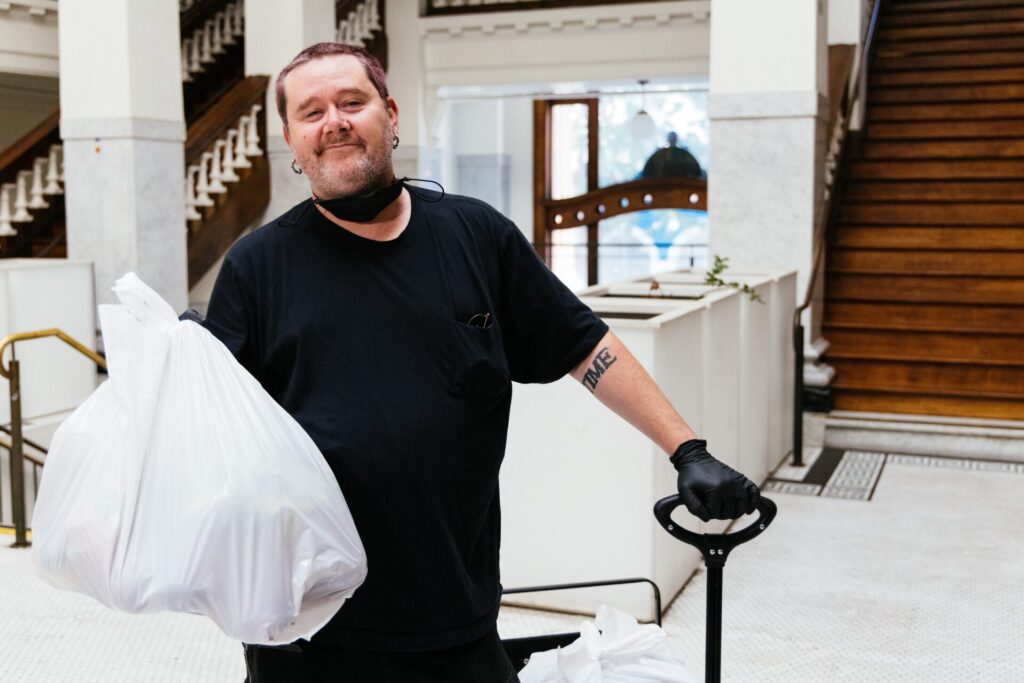
Coming from an Italian family where a full belly was the highest compliment, Food Bank volunteer Sam grew up knowing that food was “a big deal.”
“Without food, I feel like life would be boring,” he shared. “Food is a way for people to show how much they care about people, without knowing how to say it or show it otherwise. I feel like you can solve a lot of problems with food.”
In July of 2021, food helped Sam solve a problem of his own: how to occupy his time as a newly sober person. Meditating on the value of food in his own life, and as a safety net and springboard for others, he decided to volunteer with the Food Bank.
“Trying to Make a Life”
After a short stint packing grocery bags at the San Francisco warehouse, Sam began delivering fresh food to the doorsteps of homebound neighbors. But soon, he was wondering how he could make an even greater impact. Eager to build a consistent routine and establish a connection with folks on his route, Sam “adopted a building” to deliver food to the same families in the Tenderloin each week.
Reflecting on his experiences over the past three years, Sam was quick to counter common misperceptions about food insecurity in the Tenderloin: “I deliver food to not just folks who are in from the cold, but a lot of people who are trying to make a life and get back on their feet,” he shared. “There are families in these neighborhoods that need this service. They’ve got children they have to feed.”
Underscoring Sam’s point, only 3% of Food Bank participants are unhoused and 60% have at least one member of the family working. It’s clear that homelessness and unemployment are not the drivers of food insecurity in our community. That’s why we’re working with partners, advocates and volunteers like Sam to address hunger at its root: income inequality, the sky-high cost of living, systemic inequities and an insufficient social safety net.
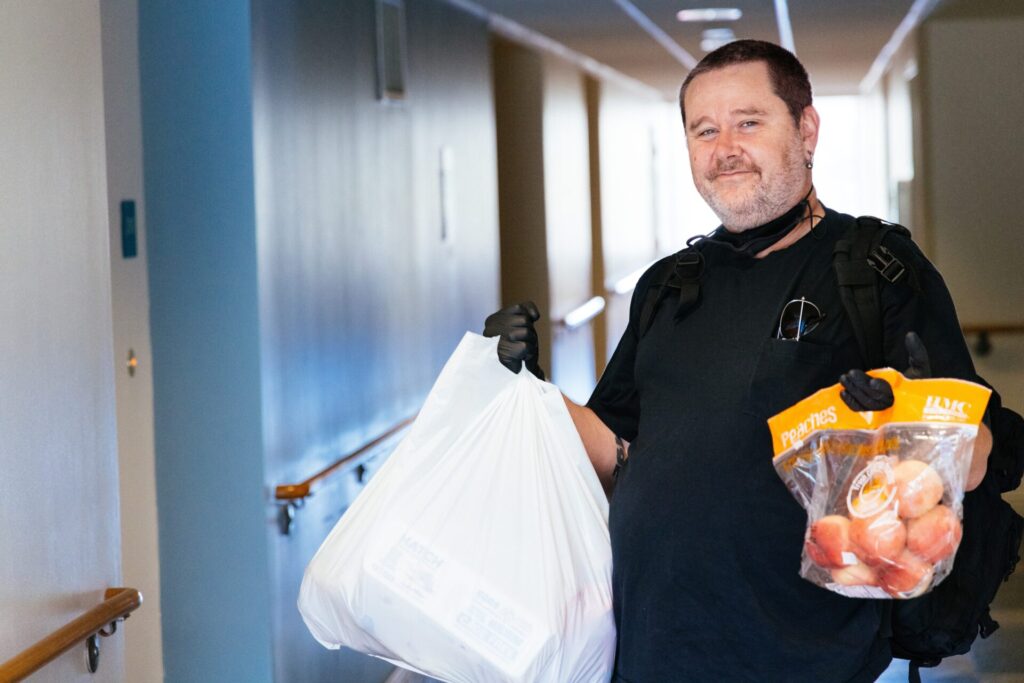 Haircuts and Healthy Groceries
Haircuts and Healthy Groceries
Born and raised in Potrero Hill, Sam is determined to keep making a difference in the city that he loves. “I believe that whatever small thing I can do is still a note better than nothing,” he told us.
But Sam’s dedication is no “small thing” by any measure. To date, he’s shared more than 130,000 pounds of food with neighbors and volunteered more than 700 hours of his time. He delivers to 75 households weekly. And he’s even picked up some unlikely tools – scissors and a razor – to better meet the needs of his neighbors.
“I started the barber thing in January of this year. I let everybody [on my route] know upfront: ‘I’m a student barber, but I’m totally willing to give you a free haircut.’ There was one gentleman who really sticks out to me, his name was Paul. I got him cut up looking good. His afro was looking tight, got him a good shave going. He was rocking his handlebar mustache after I was finished. He was giddy almost with excitement,” Sam laughed.
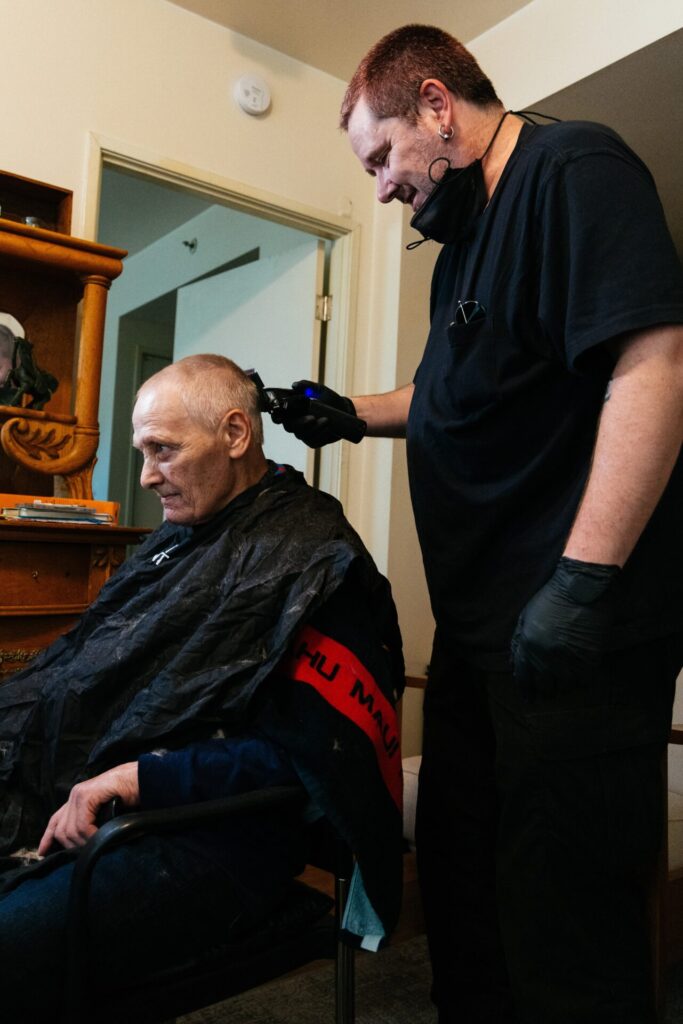 “Kindness is Strength”
“Kindness is Strength”
From trims to line-ups, Sam is building his barbering repertoire while building connections with his neighbors – including a participant on his route who is a barber herself! His driving ethos is the same through it all: “What can I do to lift this person up, to empower them to take the reins and then go forward?”
Whether through food, friendly conversation or a solid shave, Sam’s compassion shows up in every interaction. And when asked to make an elevator pitch for becoming a driver for Home-Delivered Groceries, his call to action is simple.
“In the world now, being kind to one another is the strongest thing that you can do for your fellow human being. Kindness is strength. And there are a lot of people who are stronger than they think they are.”


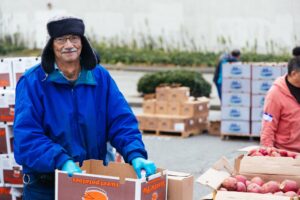 Volunteering with the Food Bank in May 2020 was really a no-brainer for Mitchell. As a retired government worker for various public health agencies, he already had a deep knowledge of epidemics and health outbreaks. Combined with the driving force of his faith, Mitchell knew he wanted to help his community out during a difficult and pivotal time.
Volunteering with the Food Bank in May 2020 was really a no-brainer for Mitchell. As a retired government worker for various public health agencies, he already had a deep knowledge of epidemics and health outbreaks. Combined with the driving force of his faith, Mitchell knew he wanted to help his community out during a difficult and pivotal time.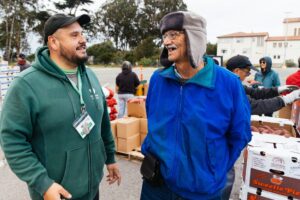
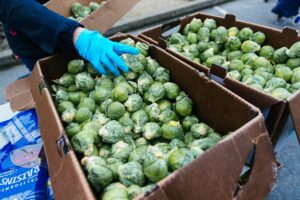 a pallet and put it on the table. And I will be 80 years old in July!”
a pallet and put it on the table. And I will be 80 years old in July!”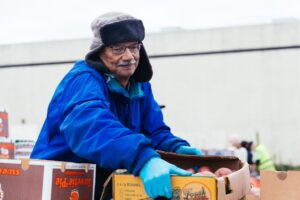 way to ensure we can continue meeting the immediate needs of our neighbors while strategically planning for more long-term, holistic solutions in the future. Thank you, Mitchell, for your dedication to ending hunger in San Francisco and Marin! We can’t do this work without supporters like you.
way to ensure we can continue meeting the immediate needs of our neighbors while strategically planning for more long-term, holistic solutions in the future. Thank you, Mitchell, for your dedication to ending hunger in San Francisco and Marin! We can’t do this work without supporters like you.
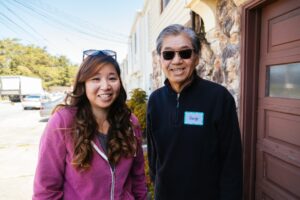
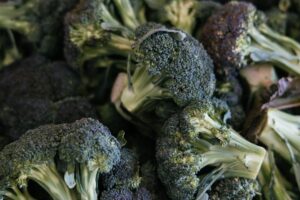 about his health and also wanted to make sure that he didn’t lose access to the pantry’s services if he was still in need of the food. That’s when I remembered that included in the handwritten card that his granddaughter had given me, was her mom’s contact info.
about his health and also wanted to make sure that he didn’t lose access to the pantry’s services if he was still in need of the food. That’s when I remembered that included in the handwritten card that his granddaughter had given me, was her mom’s contact info. 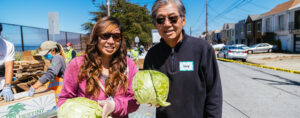
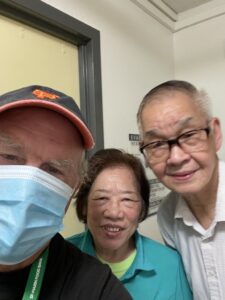 After working in the warehouse and at different Food Bank pantries during the early pandemic, Nick signed up to home-deliver groceries to seniors, families with young children, folks with disabilities and other neighbors who weren’t able to make it to a traditional pantry but still needed food. His shift took him all throughout the city — including neighborhoods that he, after many years of living in San Francisco, had never been to before.
After working in the warehouse and at different Food Bank pantries during the early pandemic, Nick signed up to home-deliver groceries to seniors, families with young children, folks with disabilities and other neighbors who weren’t able to make it to a traditional pantry but still needed food. His shift took him all throughout the city — including neighborhoods that he, after many years of living in San Francisco, had never been to before. 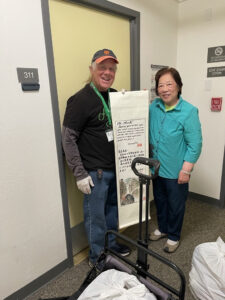 couple on his delivery route, sticks out for Nick above the rest.
couple on his delivery route, sticks out for Nick above the rest.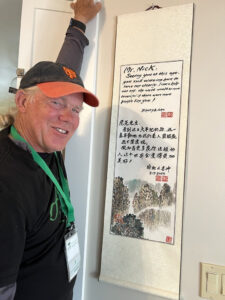 “I am humbled by all the effort behind me, by all the people at the Food Bank who make this happen. That’s the extraordinary part of this. The people who are out there on the curb in all kinds of weather, loading groceries into people’s cars, people who are working in the warehouse day after day, that’s not exactly the easiest thing to do,” he said. “I’m just the delivery boy.”
“I am humbled by all the effort behind me, by all the people at the Food Bank who make this happen. That’s the extraordinary part of this. The people who are out there on the curb in all kinds of weather, loading groceries into people’s cars, people who are working in the warehouse day after day, that’s not exactly the easiest thing to do,” he said. “I’m just the delivery boy.”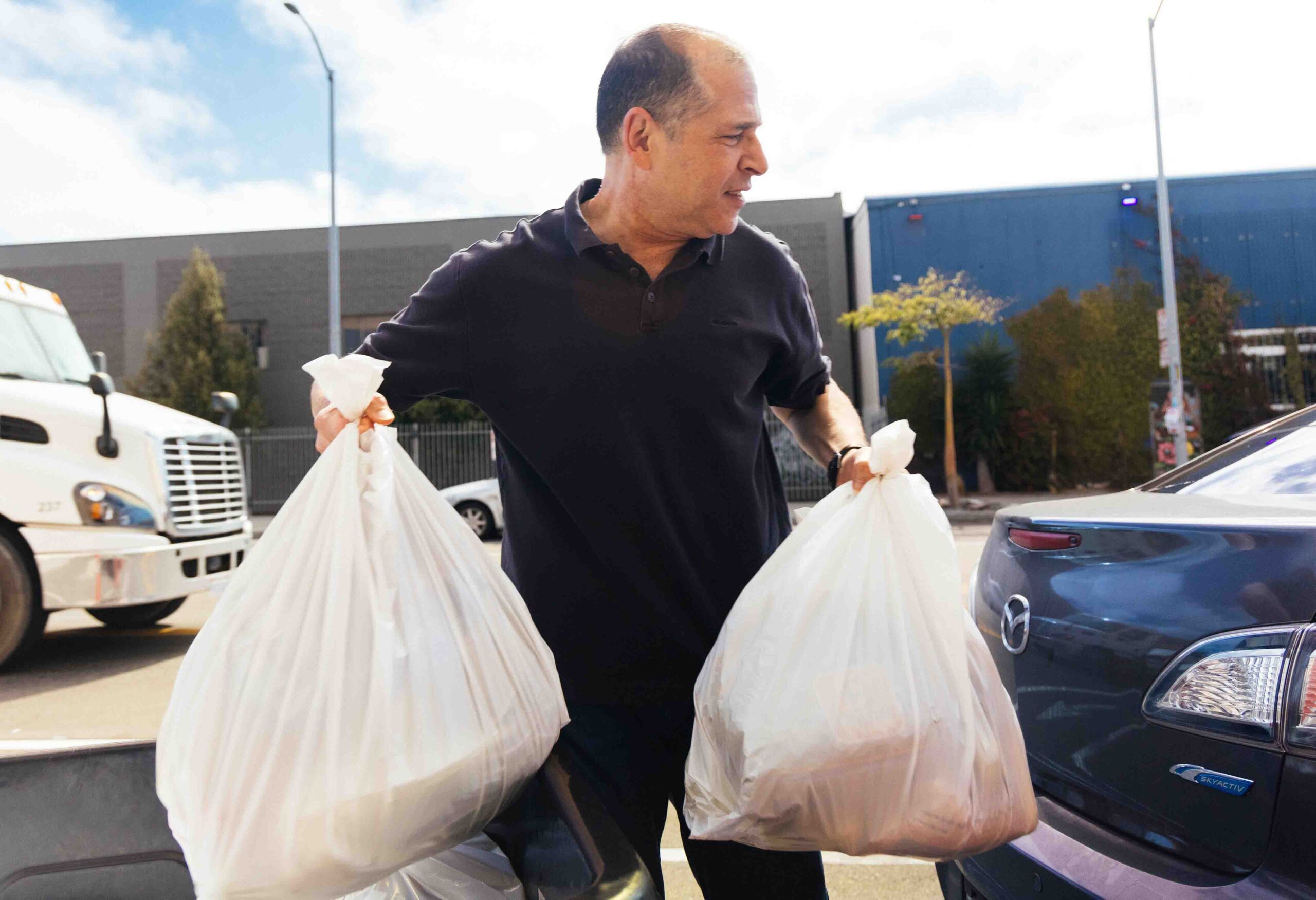
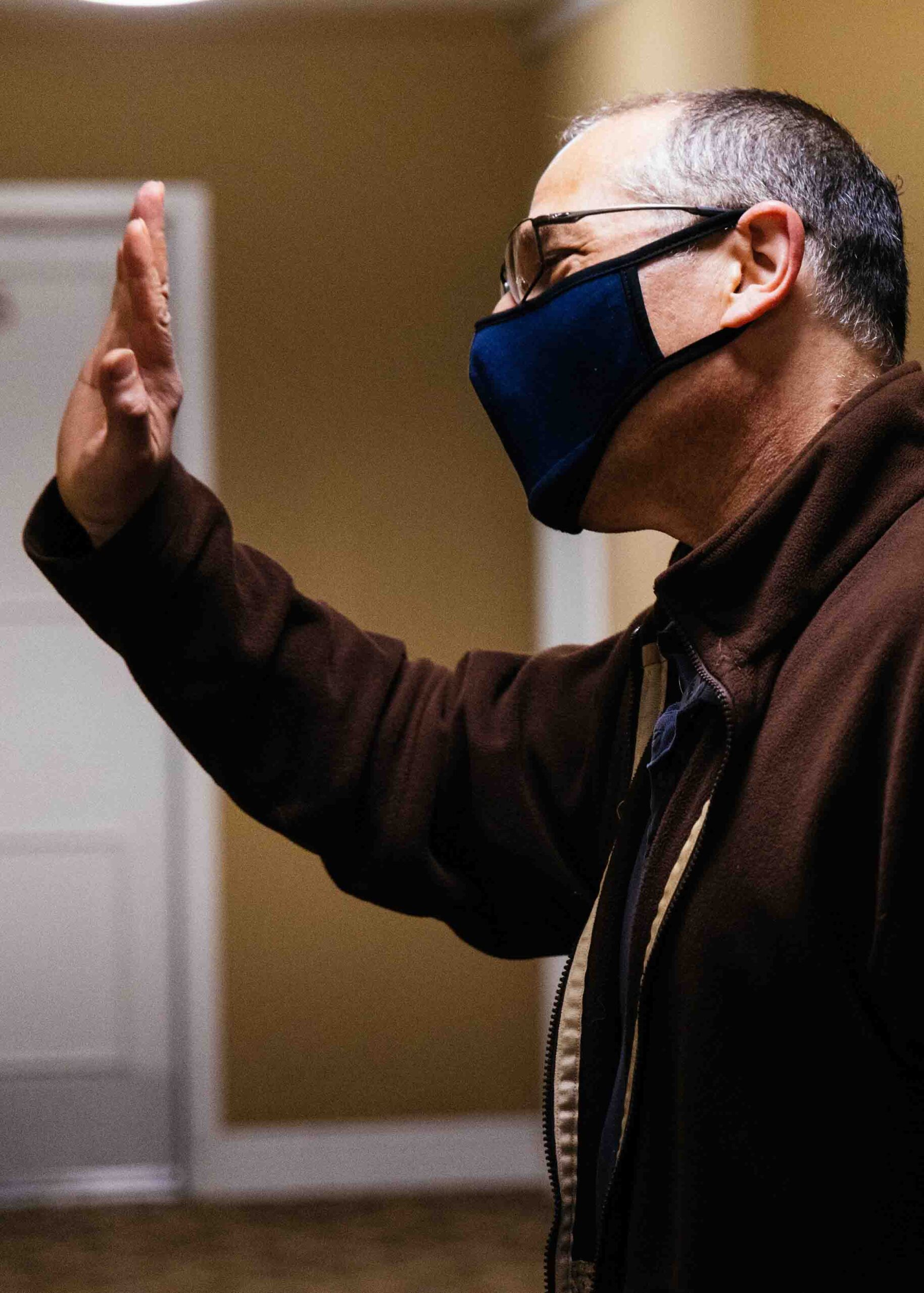
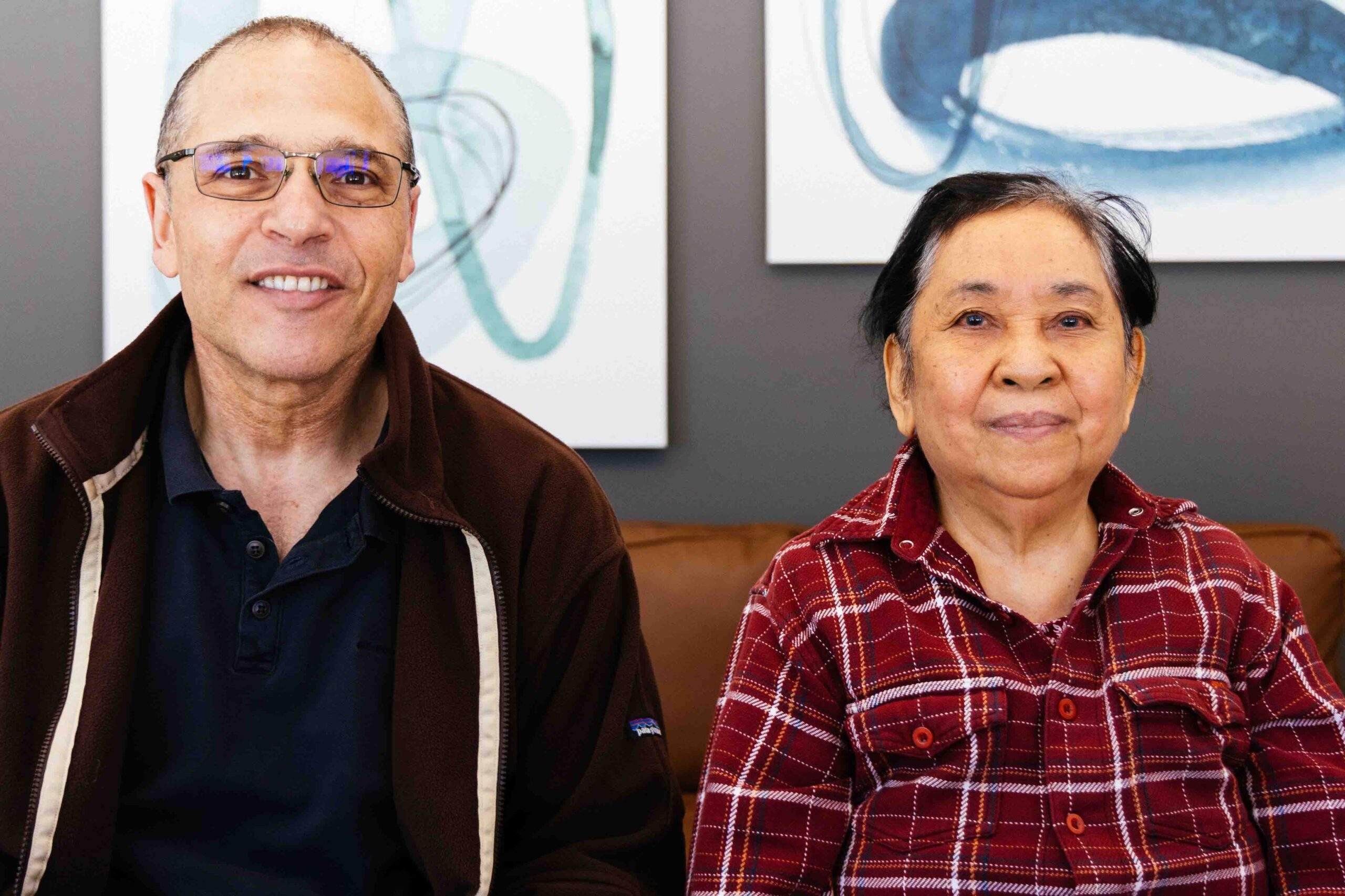
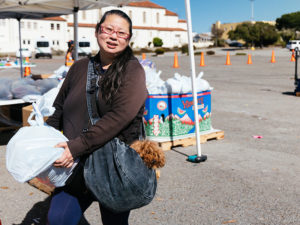 With her rescue dog Charlie slung over her hip in a crossbody bag (she says, “my passion is, I love dogs”), Cilla Lee was hard to miss at the Stonestown Pop-up Pantry where we met. And as she talked, three things became apparent: Cilla is a woman with a lot of ideas, a lot of drive, and a lot of herself to give. A San Franciscan since the age of five, she says that the pandemic “made [her] step up” when it came to supporting her community.
With her rescue dog Charlie slung over her hip in a crossbody bag (she says, “my passion is, I love dogs”), Cilla Lee was hard to miss at the Stonestown Pop-up Pantry where we met. And as she talked, three things became apparent: Cilla is a woman with a lot of ideas, a lot of drive, and a lot of herself to give. A San Franciscan since the age of five, she says that the pandemic “made [her] step up” when it came to supporting her community. 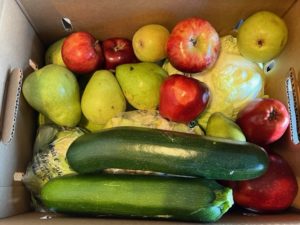 upon the concept of “Buy-Nothing Groups,” virtual and occasionally in-person communities where immediate neighbors exchange all types of goods, services and information– all for free, all from their own abundance, all as part of a “gift economy.”
upon the concept of “Buy-Nothing Groups,” virtual and occasionally in-person communities where immediate neighbors exchange all types of goods, services and information– all for free, all from their own abundance, all as part of a “gift economy.” 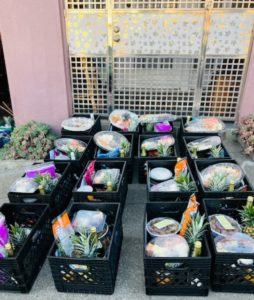 Cilla became the admin of the Outer Richmond Buy Nothing group on Facebook. While food isn’t often the primary focus of Buy Nothing groups, in the early pandemic, food donations started rolling in. At first, she started out by making baked goods and offering them up to add a little sweetness to her neighbor’s days.
Cilla became the admin of the Outer Richmond Buy Nothing group on Facebook. While food isn’t often the primary focus of Buy Nothing groups, in the early pandemic, food donations started rolling in. At first, she started out by making baked goods and offering them up to add a little sweetness to her neighbor’s days. 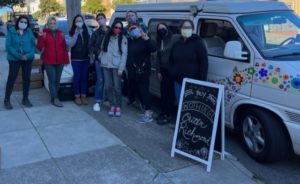
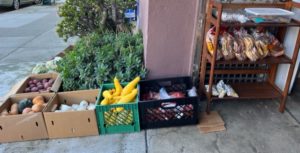
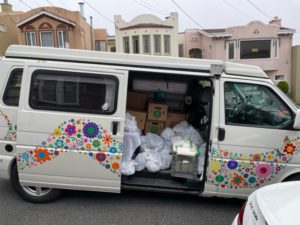
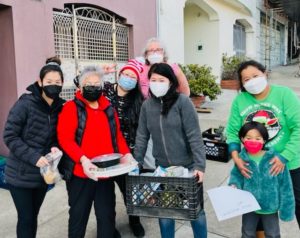 At the Food Bank, we’re grateful to learn from and be in partnership with people like Cilla, who use their knowledge of their neighbors to find hyper-localized, community-specific solutions and novel ways to fight hunger. Ultimately, like Cilla says, at the heart of it all is the gift of connecting with our neighbors– and food is a pathway to do just that.
At the Food Bank, we’re grateful to learn from and be in partnership with people like Cilla, who use their knowledge of their neighbors to find hyper-localized, community-specific solutions and novel ways to fight hunger. Ultimately, like Cilla says, at the heart of it all is the gift of connecting with our neighbors– and food is a pathway to do just that. 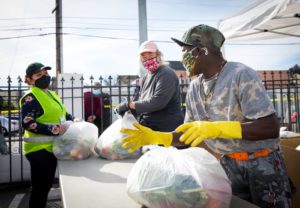
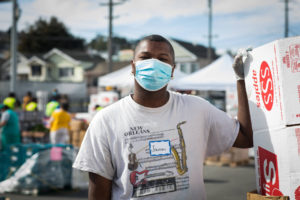
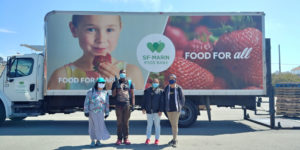
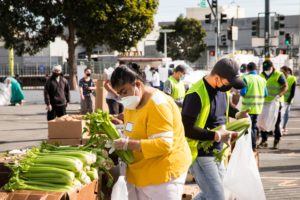
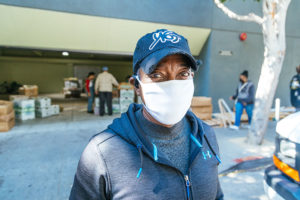 L
L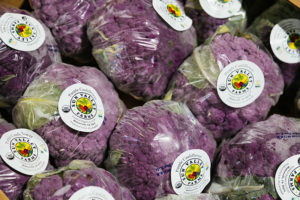 delivering more than nutrition to their parish. SFAAFBC’s holistic approach allows them to target the root causes of food insecurity by caring for the whole person.
delivering more than nutrition to their parish. SFAAFBC’s holistic approach allows them to target the root causes of food insecurity by caring for the whole person.
Share